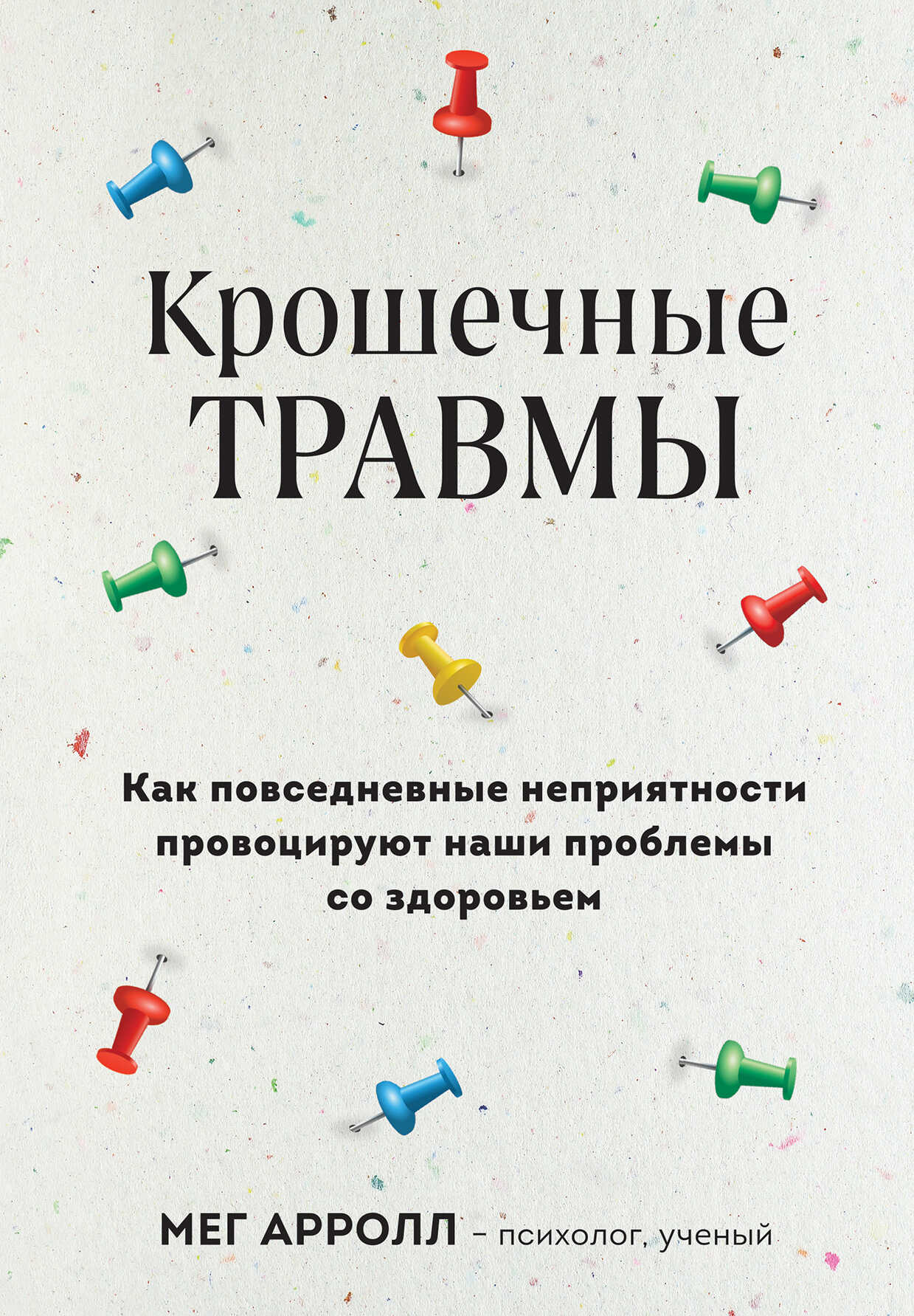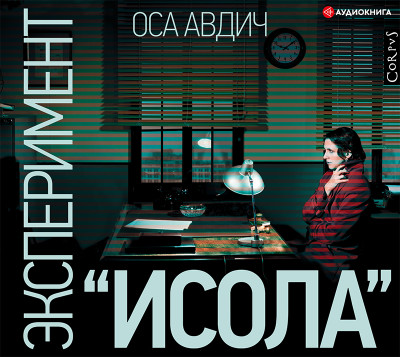Читать книгу - "Крошечные травмы. Как повседневные неприятности провоцируют наши проблемы со здоровьем - Мег Арролл"
Аннотация к книге "Крошечные травмы. Как повседневные неприятности провоцируют наши проблемы со здоровьем - Мег Арролл", которую можно читать онлайн бесплатно без регистрации
Психическое здоровье играет не менее важную роль в жизни человека, чем физическое. Долгое время считалось, что причина психических расстройств кроется в тяжелых травмах, таких как насилие, родительское пренебрежение, военные действия и т.д., однако в последнее время появляется все больше исследований, которые показывают, что маленькие повседневные травмы, например неприятное семейное сборище или небольшое ДТП, оказывают на психику не менее губительное воздействие. Именно об этих маленьких травмах идет речь в данной книге. ОНА ПОДОЙДЕТ ВСЕМ, КОМУ КАЖЕТСЯ, ЧТО ОН «БЬЕТСЯ ГОЛОВОЙ О СТЕНУ ЖИЗНИ». Автор книги психолог Мег Арролл не ограничивается теорией и предлагает читателям упражнения, которые помогут выявить маленькие травмы, преодолеть их и выработать психологический иммунитет к большим травмам. Сколько бы травм у человека ни было, он всегда может преодолеть психические, социальные и физические препятствия для личностного роста и развития. Арролл утверждает, что, даже если у человека очень много маленьких травм, ее техники позволят улучшить каждый аспект его жизни.
3. Bretherton, I. ‘The origins of attachment theory: John Bowlby and Mary Ainsworth’, Developmental Psychology, 28(5) (1992), p. 759.
4. De Schipper, J. C., Oosterman, M. and Schuengel, C. ‘Temperament, disordered attachment, and parental sensitivity in foster care: Differential findings on attachment security for shy children’, Attachment & Human Development, 14(4) (2012), pp. 349–365.
5. If you haven’t seen Ferris Bueller’s Day Off, or indeed the entire back catalogue of John Hughes films, then stop reading this book immediately and go to your nearest streaming service! So many examples of Tiny T can be found in 1980s movies…
6. Passmore, H. A., Lutz, P. K. and Howell, A. J. ‘Eco-anxiety: A cascade of fundamental existential anxieties’, Journal of Constructivist Psychology (2022), pp. 1–16. doi: 10.1080/10720537.2022.2068706.
7. Seligman, M. E. The Hope Circuit: A Psychologist’s Journey from Helplessness to Optimism, Hachette UK, 2018.
8. Layard, P. R. G. and Layard, R. Happiness: Lessons from a New Science, Penguin UK, 2011.
9. Agarwal, S. K., Chapron, C., Giudice, L. C., Laufer, M. R., Leyland, N., Missmer, S. A., Singh, S. S. and Taylor, H. S. ‘Clinical diagnosis of endometriosis: A call to action’, American Journal of Obstetrics and Gynecology, 220(4) (2019), pp. 354–364.
10. Chen, E. H., Shofer, F. S., Dean, A. J., Hollander, J. E., Baxt, W. G., Robey, J. L., Sease, K. L. and Mills, A. M. ‘Gender disparity in analgesic treatment of emergency department patients with acute abdominal pain’, Academic Emergency Medicine, 15(5) (2008), pp. 414–418.
11. Diener, E., Seligman, M. E., Choi, H. and Oishi, S. ‘Happiest people revisited’, Perspectives on Psychological Science, 13(2) (2018), pp. 176–184.
12. Brickman, P., Coates, D. and Janoff-Bulman, R. ‘Lottery winners and accident victims: Is happiness relative?’, Journal of Personality and Social Psychology, 36(8) (1978), p. 917.
13. Kraft, T. L. and Pressman, S. D. ‘Grin and bear it: The influence of manipulated facial expression on the stress response’, Psychological Science, 23(11) (2012), pp. 1372–1378.
14. Wilkes, C., Kydd, R., Sagar, M. and Broadbent, E. ‘Upright posture improves affect and fatigue in people with depressive symptoms’, Journal of Behavior Therapy and Experimental Psychiatry, 54 (2017), pp. 143–149.
15. Keyes, C. L. ‘The mental health continuum: From languishing to flourishing in life’, Journal of Health and Social Behavior (2002), pp. 207–222.
16. Affleck, W., Carmichael, V. and Whitley, R. ‘Men’s mental health: Social determinants and implications for services’, The Canadian Journal of Psychiatry, 63(9) (2018), pp. 581–589.
17. Check permissions in Lomas, T. ‘Towards a positive crosscultural lexicography: Enriching our emotional landscape through 216 “untranslatable” words pertaining to well-being’, The Journal of Positive Psychology (2016), pp. 1–13. doi: 10.1080/17439760.2015.1127993.
18. Jiang, T., Cheung, W. Y., Wildschut, T. and Sedikides, C. ‘Nostalgia, reflection, brooding: Psychological benefits and autobiographical memory functions’, Consciousness and Cognition, 90 (2021). doi: 10.1016/j.concog.2021.103107.
19. Cheung, W. Y., Wildschut, T., Sedikides, C., Hepper, E. G., Arndt, J. and Vingerhoets, A. J. ‘Back to the future: Nostalgia increases optimism’, Personality and Social Psychology Bulletin, 39(11) (2013), pp. 1484–1496.
20. Sedikides, C., Leunissen, J. and Wildschut, T. ‘The psychological benefits of music-evoked nostalgia’, Psychology of Music (2021). doi: 10.1177/03057356211064641.
21. Cheung, W. Y., Hepper, E. G., Reid, C. A., Green, J. D., Wildschut, T. and Sedikides C. ‘Anticipated nostalgia: Looking forward to looking back’, Cognition and Emotion, 34(3) (2020), pp. 511–525. doi: 10.1080/02699931.2019.1649247.
22. Vervliet, B. and Boddez, Y. ‘Memories of 100 years of human fear conditioning research and expectations for its future’, Behaviour Research and Therapy, 135 (2020), pp. 1–9.
23. Pittman, C. M. and Karle, E. M. Rewire Your Anxious Brain: How to Use the Neuroscience of Fear to End Anxiety, Panic, and Worry, New Harbinger Publications, 2015.
24. Rozlog, L. A., Kiecolt Glaser, J. K., Marucha, P. T., Sheridan, J. F. and Glaser, R. ‘Stress and immunity: Implications for viral disease and wound healing’, Journal of Periodontology, 70(7) (1999), pp. 786–792.
25. Scholey, A., Haskell, C., Robertson, B., Kennedy, D., Milne, A. and Wetherell, M. ‘Chewing gum alleviates negative mood and reduces cortisol during acute laboratory psychological stress’, Physiology & Behavior, 97(3–4) (2009), pp. 304–312.
26. Gallup, A. C. and Eldakar, O. T. ‘The thermoregulatory theory of yawning: What we know from over 5 years of research’, Frontiers in Neuroscience, 6 (2013), p. 188.
27. DeBoer, L. B., Powers, M. B., Utschig, A. C., Otto, M. W. and Smits, J. A. ‘Exploring exercise as an avenue for the treatment of anxiety disorders’, Expert Review of Neurotherapeutics, 12(8) (2012), pp. 1011–1022.
28. Powers, M. B., Asmundson, G. J. and Smits, J. A. ‘Exercise for mood and anxiety disorders: The state-of-the science’, Cognitive Behaviour Therapy, 44(4) (2015), pp. 237–239.
29. Stonerock, G. L., Hoffman, B. M., Smith, P. J., and Blumenthal, J. A. ‘Exercise as Treatment for Anxiety: Systematic Review and Analysis.’ Annals of behavioral medicine: a publication of the Society of Behavioral Medicine vol. 49,4 (2015): 542–556. doi: 10.1007/s12160-014-9685-9.
30. Abramowitz, J. S., Deacon, B. J. and Whiteside, S. P. Exposure Therapy for Anxiety: Principles and Practice, Guilford Publications, 2019.
31. Burcaş, S. and Creţu, R. Z. ‘Perfectionism and neuroticism: Evidence for a common genetic and environmental etiology’, Journal of Personality, 89(4) (2021), pp. 819–830.
32. Lopes, B. and Yu, H. ‘Who do you troll and why: An investigation into the relationship between the Dark Triad Personalities and online trolling behaviours towards popular and less popular Facebook profiles’, Computers in Human Behavior, 77 (2017), pp. 69–76.
33. Avast, 2021. ‘Avast Foundation survey reveals trolling becoming an accepted behaviour for younger generations’. Доступно по ссылке: https://press.avast.com/en-gb/avast-foundation-survey-revealstrolling-becoming-an-accepted-behaviour-for-younger– generations?_ga=2.256764171.1422491308.1638966148-989583476.1638875314 (Accessed: 29/05/2022).
34. Cheng, J., Bernstein, M., Danescu-Niculescu-Mizil, C. and Leskovec, J. ‘Anyone can become a troll: Causes of trollingbehavior in online discussions’, in Proceedings of the 2017ACM Conference on Computer Supported Cooperative Workand Social
Прочитали книгу? Предлагаем вам поделится своим впечатлением! Ваш отзыв будет полезен читателям, которые еще только собираются познакомиться с произведением.
Оставить комментарий
-
 Вера Попова27 октябрь 01:40
Любовь у всех своя-разная,но всегда это слово ассоциируется с радостью,нежностью и счастьем!!! Всем добра!Автору СПАСИБО за добрую историю!
Любовь приходит в сентябре - Ника Крылатая
Вера Попова27 октябрь 01:40
Любовь у всех своя-разная,но всегда это слово ассоциируется с радостью,нежностью и счастьем!!! Всем добра!Автору СПАСИБО за добрую историю!
Любовь приходит в сентябре - Ника Крылатая
-
 Вера Попова10 октябрь 15:04
Захватывает,понравилось, позитивно, рекомендую!Спасибо автору за хорошую историю!
Подарочек - Салма Кальк
Вера Попова10 октябрь 15:04
Захватывает,понравилось, позитивно, рекомендую!Спасибо автору за хорошую историю!
Подарочек - Салма Кальк
-
 Лиза04 октябрь 09:48
Роман просто супер давайте продолжение пожалуйста прочитаю обязательно Плакала я только когда Полина искала собаку Димы барса ♥️ Пожалуйста умаляю давайте еще !))
По осколкам твоего сердца - Анна Джейн
Лиза04 октябрь 09:48
Роман просто супер давайте продолжение пожалуйста прочитаю обязательно Плакала я только когда Полина искала собаку Димы барса ♥️ Пожалуйста умаляю давайте еще !))
По осколкам твоего сердца - Анна Джейн
-
 yokoo18 сентябрь 09:09
это прекрасный дарк роман!^^ очень нравится
#НенавистьЛюбовь. Книга вторая - Анна Джейн
yokoo18 сентябрь 09:09
это прекрасный дарк роман!^^ очень нравится
#НенавистьЛюбовь. Книга вторая - Анна Джейн





